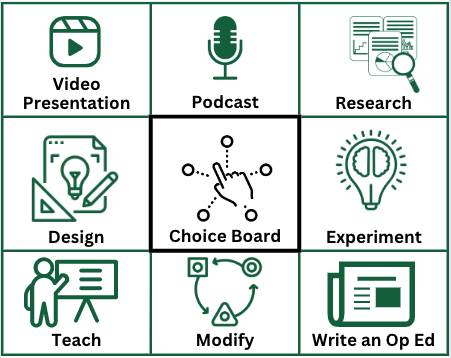Assessment For Learning
“Students can, with difficulty, escape from the effects of poor teaching, they cannot (by definition if they want to graduate) escape the effects of poor assessment.” (Boud, 1998)
Think back to your experience as an undergraduate. How did you decide what to focus on in the hours outside the classroom? What drove your priorities in selecting what work to dedicate time to?
If you were anything like me your decisions were driven by what you thought would get you a good grade. Don’t get me wrong, I was there to learn and was passionate about the subject I was studying. But I was also practical. I had limited time to expend and I had to figure out what was important and how to focus my effort to achieve my end goal – to graduate with ‘good marks’.
Research evidence conclusively demonstrates that the most powerful way to direct student ‘time on task’ is through assessment. Students are motivated by and will expend energy on what they think will help them achieve a good outcome in the course. The assessment tasks set in a course also send clear messages to students about what is important, both in terms of priority content areas but also the skills that are important in the discipline being studied.
I have found it valuable to spend time thinking about what I would like students to accomplish through completion of the assessment tasks I set. Do I wish to develop student abilities in memorization, analysis, complex problem solving, creativity, written or verbal communication skills or a combination of the above? How does the assessment I set match my aspirations?
In my first experience of teaching many years ago I designed the course assessment in the way that I had been assessed as an undergraduate. Indeed, many of us start our teaching careers emulating what we have experienced as students. I now know that the assessment method I selected did not match the objectives I had set for the course.
Thankfully I taught the course for over a decade, and in that time shifted the assessment frequency, method and focus with support and input from my institution’s learning and teaching centre. I also introduced peer and self assessment to develop my student’s skills in evaluating their own and others work, key skills to equip students for successful life long learning. Each year my incremental evidence based improvements had an impact. The work my students produced demonstrated a greater mastery of the subject and higher order thinking skills.
This was accomplished with only minor changes to the way I taught the course. I would contend that this is a small example of the power of assessment in action.
If you would like to learn more about shifting from assessment OF learning to assessment FOR learning I would suggest the Principles of Assessment document produced by the TESTA Assessment project in the United Kingdom. You may also want to check out one of the GMCTE events on assessment in the next academic year.
Boud, D. (1998). Assessment and learning – unlearning bad habits of assessment. Presentation to the Conference ‘Effective Assessment at University’, University of Queensland, 4-5 November 1998 available at http://damianeducationresearchlinks.wikispaces.com/file/view/unlearningassessment_Boud.pdf.


